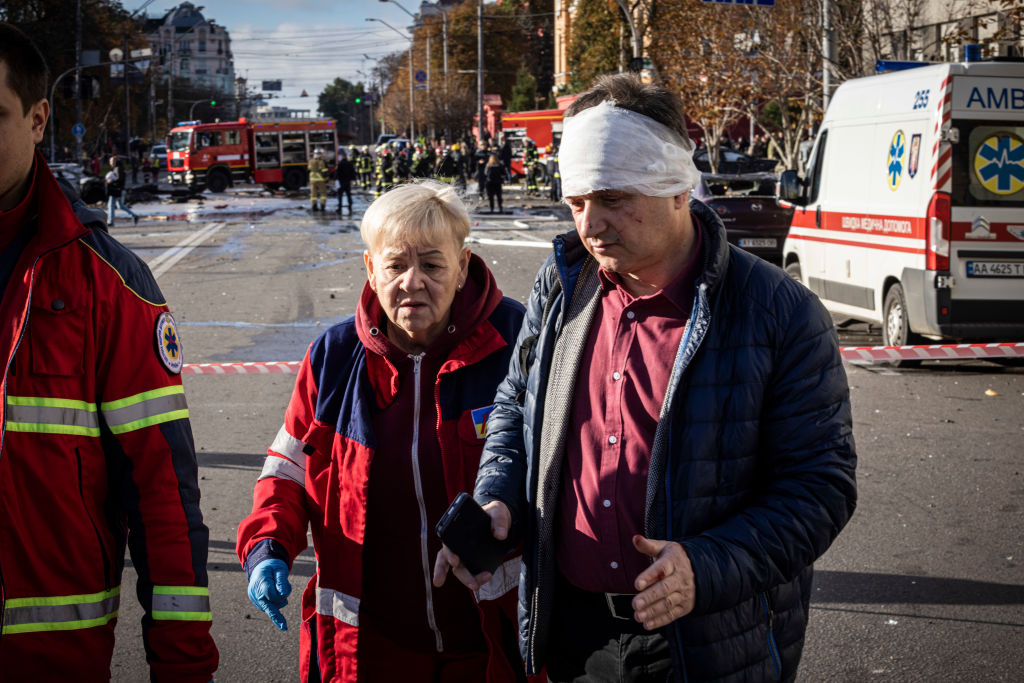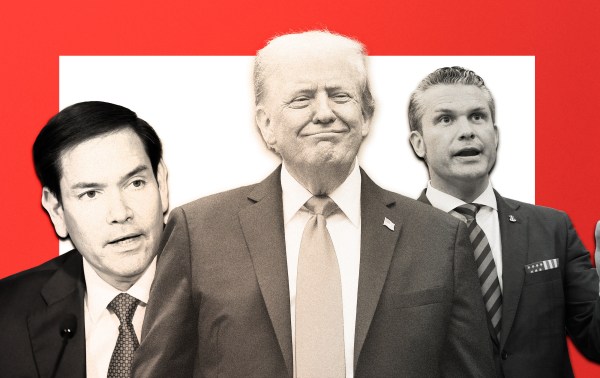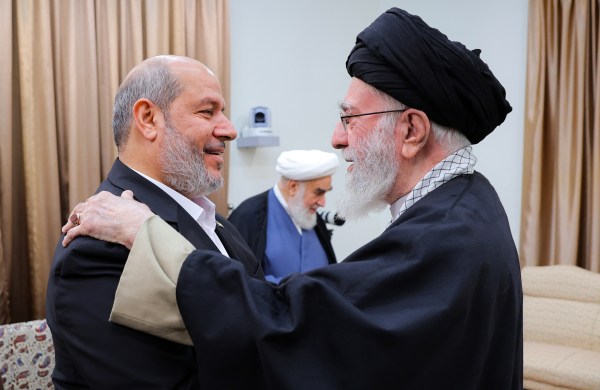Ukrainians’ confidence is growing after a series of battlefield victories culminated with a successful attack on the symbolically and strategically important Kerch Bridge. Yet anxiety lingers over Russian President Vladimir Putin’s commitment to his bloody and protracted invasion—and what he might do to turn the tide.
A consensus has developed in Ukraine that winning is the only option. That means repelling Russian forces from Ukraine’s internationally recognized borders, taking legal action against Russian war criminals, pursuing reparations and eventually joining the European Union and NATO. The question is whether Ukraine can maintain these ambitious goals if its supporters begin pushing for a less ambitious settlement.
This week leaders of the G-7 issued a statement promising to stand with Kyiv “for as long as it takes.” National leaders have made similar pronouncements for months. Although officially supportive of Ukraine’s goals, many allies have worried publicly about the danger of Putin’s nuclear threats and energy blackmail.
“What is Putin’s off-ramp?” U.S. President Joe Biden asked a gathering of donors in New York City last week. “Where does he find himself in a position that he does not—not only lose face, but lose significant power within Russia?” Biden also implied that the way to avoid nuclear war may be to strike a deal with Moscow. This echoes statements from some skittish European leaders and even billionaire Elon Musk.
Yet a deal perceived as favorable to Russia—giving up extensive territory and promising neutrality—won’t find support among most Ukrainians. Part of the reason is the failed example of the Minsk Accords. While they secured short-lived ceasefires after Russia’s initial invasion in 2014, they normalized two Kremlin-aligned and armed enclaves on Ukrainian territory and paved the way for Putin’s February offensive.
“Ukrainians have a full right to define their war aims,” said Sławomir Dębski, director of the Polish Institute of International Affairs, “and they want to put an end to Russian occupation.”
Many NATO members argue now is the time to capitalize on Ukraine’s military momentum. The United Kingdom, the U.S., Spain, and France have pledged to bolster the country’s air and missile defenses amid Russia’s attacks on civilians. Germany delivered four of its advanced IRIS-T air-defense systems Tuesday, though its leaders continue to hold out on supplying Ukraine battle tanks.
Ukraine has also pressed the Pentagon to supply its armed forces with missile systems known as “ATACMS,” which can hit targets nearly 200 miles away. Washington has denied those requests in an apparent effort to avoid escalation, but Ukrainian officials argue that the weaponry would provide a needed deterrent against Russian strikes on civilian targets and potentially help the military retake Crimea.
Putin has received criticism from his nationalist right for not waging his already brutal war in a more ruthless manner. He may continue to pursue maximalist aims such as the removal of Ukraine’s government and the country’s demilitarization as a way to fend off nationalist criticism. Negotiating with Ukraine as an equal could imperil his rule.
Putin may instead opt to send a message to his detractors at home and adversaries abroad by deploying a nuclear weapon in Ukraine. The strategic value of using such a strike would be minimal and likely trigger NATO involvement, but it would also signal the Kremlin’s long-term commitment to the fight.
Yet Russia also faces risks by continuing the war. Chinese President Xi Jinping and Indian Prime Minister Narendra Modi—both typically reluctant to cast blame on Russia for the invasion—privately voiced concerns about the conflict to Putin during face-to-face meetings last month. “We believe that all countries deserve respect for their sovereignty and territorial integrity,” Chinese spokeswoman Mao Ning said during a press briefing Monday, calling for a peaceful resolution to the fighting.
As Russia sustains losses on the battlefield and mobilization draws attention to the conflict, Putin may also face more opposition at home. Because of Putin’s stated goal of eradicating Ukraine’s national identity, many think that his ousting would offer Russia and Ukraine their best chance at a lasting peace agreement.
“President Vladimir Putin seeks no compromises. He attacked Ukraine, driven by his desire to resurrect the Russian empire. What he demands from Ukraine is its unconditional surrender, and even if he is now unable to achieve this end, he will not simply concede,” Dębski said. “The only way the international community can influence his calculus is to arm Ukraine to the teeth, rendering his goals unachievable.”







Please note that we at The Dispatch hold ourselves, our work, and our commenters to a higher standard than other places on the internet. We welcome comments that foster genuine debate or discussion—including comments critical of us or our work—but responses that include ad hominem attacks on fellow Dispatch members or are intended to stoke fear and anger may be moderated.
With your membership, you only have the ability to comment on The Morning Dispatch articles. Consider upgrading to join the conversation everywhere.